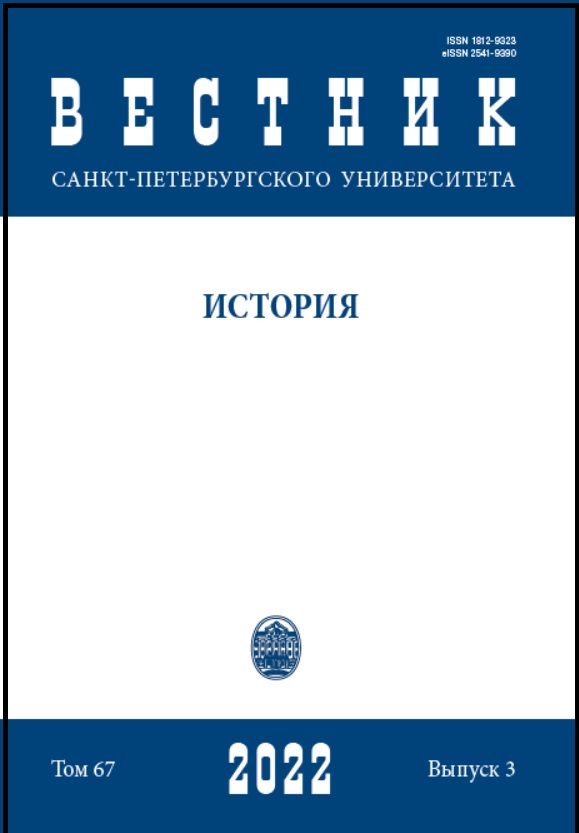Concession Export Trade of Foreign Merchants during the Reign of Peter the Great
DOI:
https://doi.org/10.21638/spbu02.2022.302Abstract
The article is devoted to the study of the participation of Western European merchants in the concession export trade of Russia in the reign of Peter I. Concession as a way of solving financial problems was often used in the trade and customs policy of Russia in the 17th–18th centuries. Having ascended the throne, Peter I continued to actively use the concession form of foreign trade of the country. Stateowned goods were transferred to the concession: caviar, rhubarb, flax, bristles, sheep wool, timber, forest chemical products. The concession export trade was mainly of interest to English and Dutch merchants, who had a large trade turnover and established themselves as reliable business partners of the government and the tsar personally, both in commercial and in diplomatic affairs. The state used the concessions not only as a solution to financial issues but also as a means to carry out foreign trade in wartime conditions, to obtain profitable trade orders abroad, to organize the sale of state-owned goods, which were not always of high quality, to attract merchants to the development of the port of Saint Petersburg, to encourage entrepreneurs who provided services to the Russian government.
Participation in the concession export trade was not always profitable for foreign traders; some of the contracts were successfully implemented (for example, for the sale of rhubarb, mast wood, pitch), but for some merchants, the implementation of the contracts was very difficult for various reasons, and their hopes for obtaining large profits were not justified.
Keywords:
foreign trade, export, foreign entrepreneurs, concession, monopoly trade, Peter I
Downloads
References
References
Downloads
Published
How to Cite
Issue
Section
License
Articles of "Vestnik of Saint Petersburg University. History" are open access distributed under the terms of the License Agreement with Saint Petersburg State University, which permits to the authors unrestricted distribution and self-archiving free of charge.





